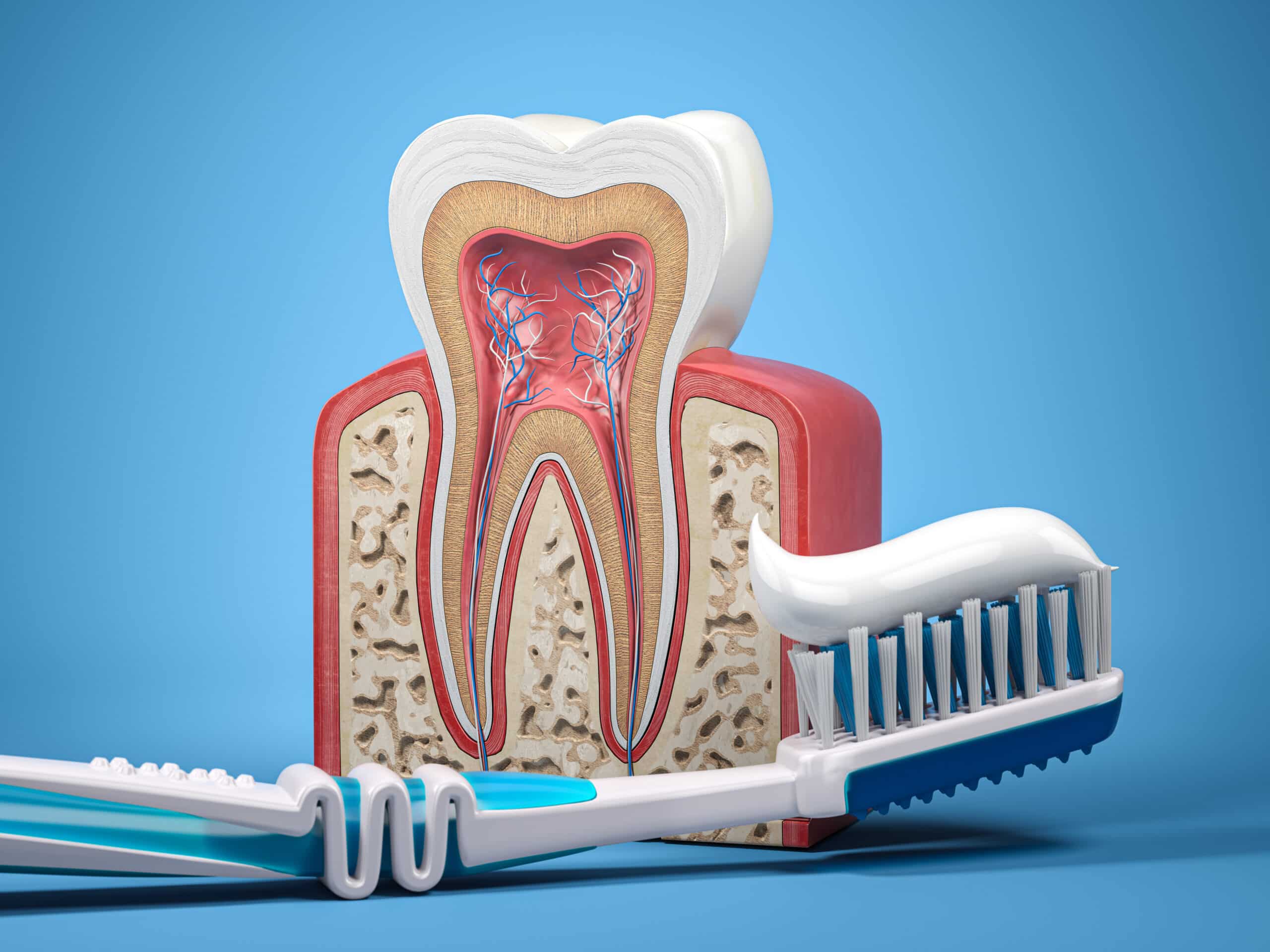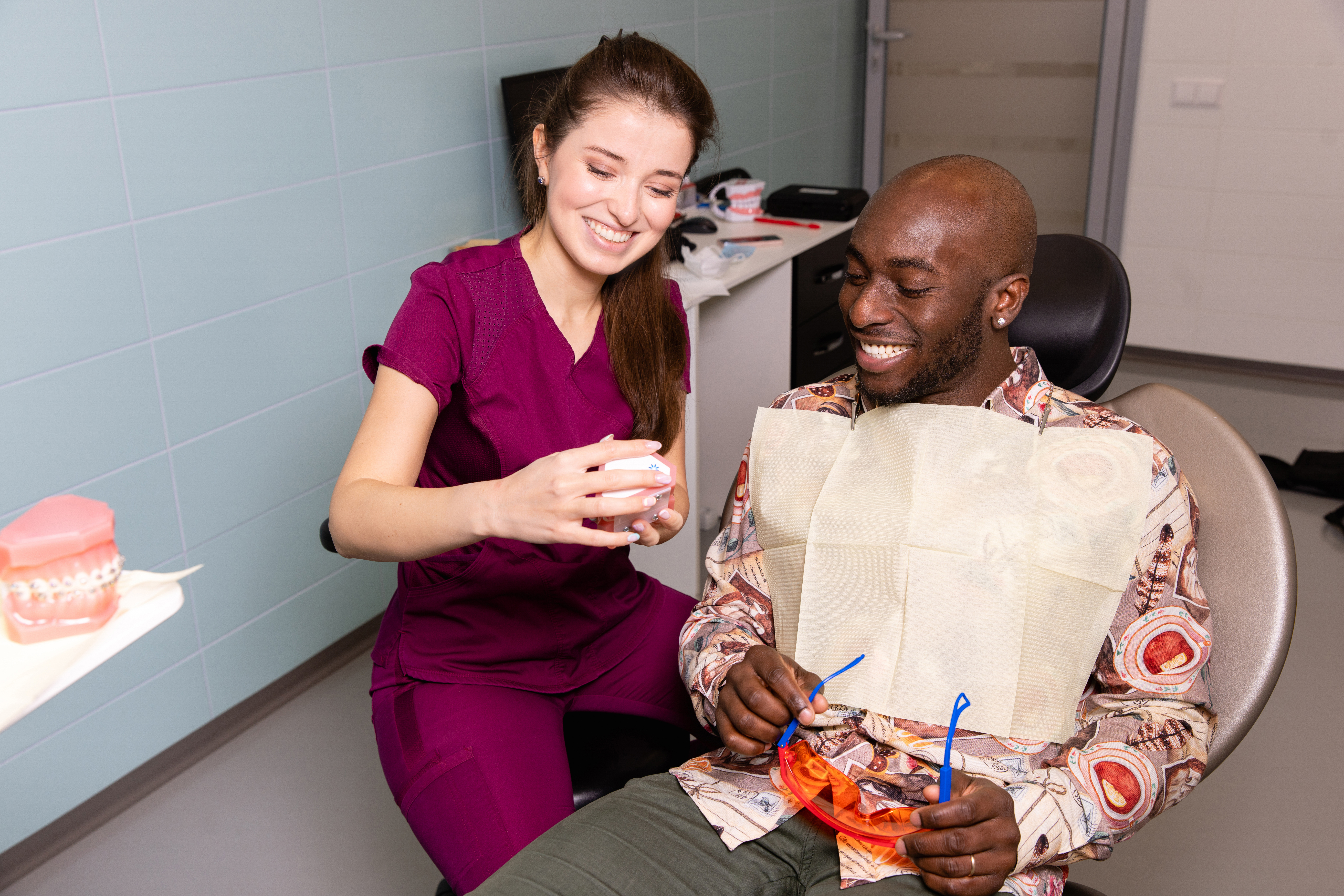Canadians are very careful when it comes to their dental care. According to a report by Statistics Canada released in 2023, nearly two-thirds (65%) of Canadians have seen a dental professional in the previous 12 months. These numbers are encouraging.
However, although more people look after their teeth, it is surprising how many dental myths still exist. In fact, many of the things we believe about dental care might actually be myths. If you wish to maintain a healthy smile and good oral hygiene, you will need to separate the facts from these dental myths.
Let’s break down the most common dental myths for you.
Myth 1: Sugar is the Main Cause of Cavities
The Myth: This is probably the most common dental myth. Most people believe that sugar is the primary culprit behind cavities. You may have heard this growing up. Let’s hope it didn’t lead to a lifelong fear of sweets.
What Science Says: Yes, sugar does play a role in it. However, it is not the sugar itself that causes cavities. Cavities are caused by bacteria in your mouth. These bacteria feed on sugar and produce acids that can erode your tooth enamel. When left unchecked, the acid can create holes in your teeth, leading to cavities.
Preventative Measures: Does this mean you should stop eating sweets? Well, not necessarily. However, you do need to control your sugar intake and keep your teeth clean. Avoid sugary snacks and drinks as much as possible, especially store-bought sweets.
Rinse your mouth thoroughly after each meal. Brush your teeth at least twice a day with fluoridated toothpaste. Floss daily to remove plaque between teeth. And most importantly, visit your dentist for regular check-ups and cleanings.
Myth 2: Whitening Damages Your Teeth
The Myth: Another equally prevailing dental myth is that teeth whitening can weaken your teeth or damage the enamel.
What Science Says: Contrary to popular belief, professional whitening treatments are designed to be safe for your teeth. For one, these treatments take place under the care of dental professionals. Secondly, these treatments use controlled amounts of bleaching agents. This may help lighten your teeth without harming the enamel. However, the same cannot be said about home teeth whitening kits. These kits can vary in effectiveness and safety.
Recommendations: You can consider teeth whitening if your teeth are yellow or stained. It is one of the least invasive and conservative methods for improving your smile. But you should consult with your dentist first. They can recommend the most appropriate treatment for your needs and restore your smile safely. We recommend against using unverified home remedies or using whitening products excessively. Excessive use can lead to sensitive teeth and other oral health issues.
Myth 3: You Only Need to See a Dentist if You Have a Toothache
The Myth: Many people think dental visits are only necessary when they have a toothache. But that is a widespread dental myth, nothing more.
What Science Says: More often than not, a toothache can be a sign of a more significant dental problems, such as cavities, gum disease or other problems in your oral cavity. Nearly 65% of Canadians see blood in the sink after brushing their teeth, which can be a sign of gingivitis or early gum disease.
These complex issues can require extensive treatments, Regular dental check-ups can help you prevent these complex issues by identifying them at their early stages when they are easier to treat
Benefits of Regular Check-Ups: Routine check-ups involve professional cleanings, typically performed by a certified dental hygienist. Professional cleanings remove plaque and tartar that brushing and flossing cannot eliminate. After this preventive dental treatment, your dentist checks your teeth for any issues and recommends the necessary treatment. They will also provide personalized advice on maintaining good oral hygiene.
Myth 4: Flossing Isn’t 100% Necessary
The Myth: Another common dental myth is that flossing is optional. Many people believe that brushing alone is enough to keep their teeth clean. But this is not true.
What Science Says: Flossing is as necessary as brushing your teeth. Flossing removes plaque and food particles from between your teeth and under the gumline. These are the areas your toothbrush cannot reach. Regular flossing (after brushing your teeth) can prevent plaque buildup, which is the breeding ground for gum disease and cavities.
Best Practices: While flossing is helpful, it needs to be performed correctly. Use a gentle sawing motion to guide the floss between your teeth. Make sure to curve it around each tooth and slide it under the gumline. You can find different types of floss, including waxed, unwaxed, and floss picks. You can choose the one that works best for you. If you are unsure, ask your dentist to recommend one.
Myth 5: The Harder You Brush, the Cleaner Your Teeth
The Myth: It is a common dental myth that brushing your teeth harder cleans them better and removes more plaque.
What Science Says: Brushing too hard will not clean your teeth better. On the contrary, it can damage your teeth and gums. Brushing harder can wear down your enamel, cause gum recession, and lead to sensitivity. Your brushing doesn’t have to be hard; it needs to be gentle and thorough.
Proper Brushing Techniques: Always use a soft-bristle toothbrush. When brushing your teeth, hold it at a 45-degree angle to your gums. Clean your teeth with gentle circular motions and avoid scrubbing back and forth.
Be sure to reach all areas of your mouth, including your tongue. Brush for at least two minutes and twice a day. Also, don’t forget to change your toothbrush every 12–16 weeks. Replacing it after that might affect your oral health.
Get Preventive Dental Care for a Healthy Smile
Debunking these dental myths is a critical step in maintaining good oral health. Armed with the right information, you can make better decisions about your dental care. So, going forward, be sure to control your sugary intake, brush and floss twice a day, consult a dentist before whitening your teeth, and don’t be hard on your teeth when cleaning them. And most importantly, visit your dentist regularly to keep your teeth healthy and strong.
Need a routine dental checkup? The dental hygienists at Yonge Eglinton Dental are here to help. To schedule your routine checkup, call today at 416-932-2222 or book an appointment online.








